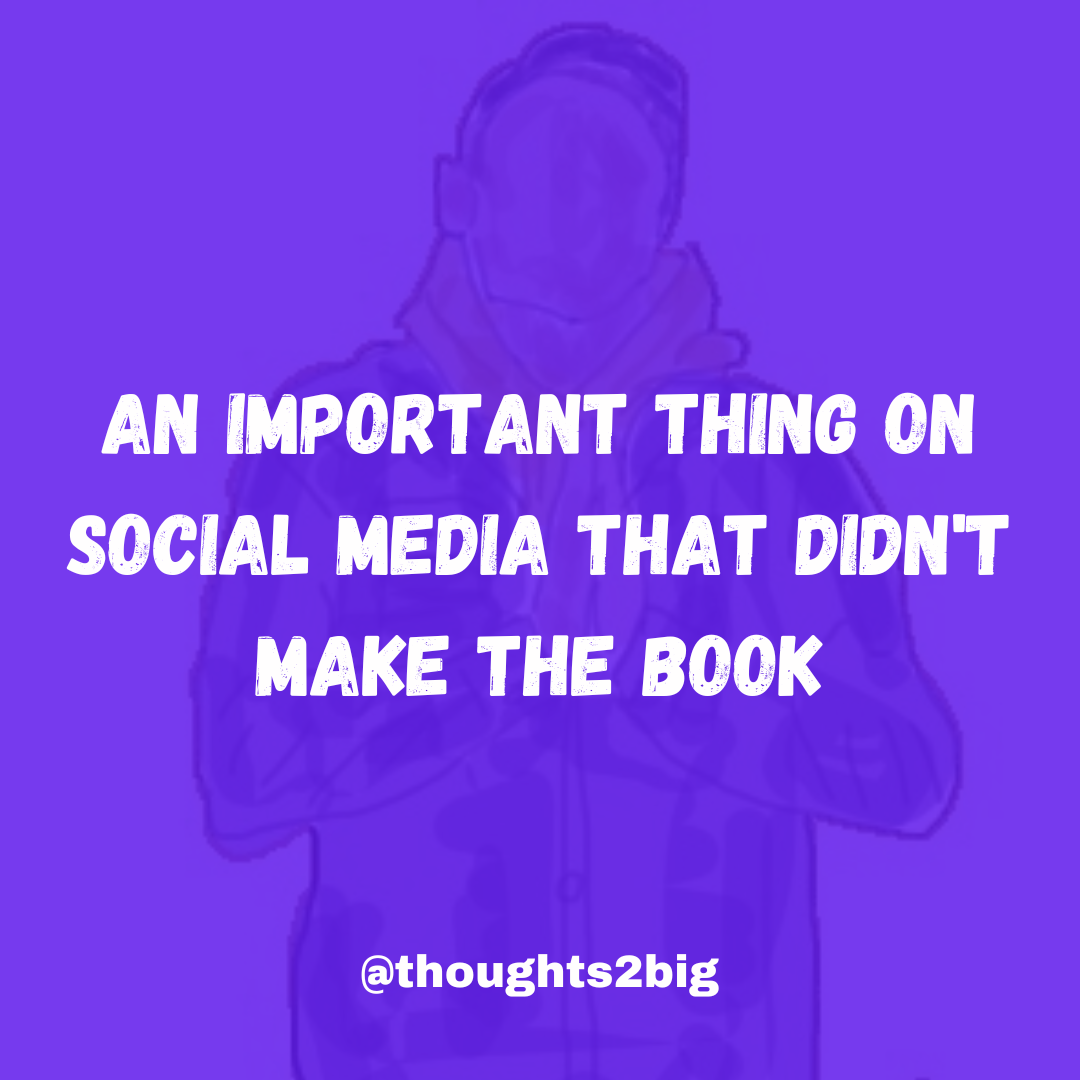An Important Thing On Social Media That Didn’t Make The Book

This week’s blog is an extract that didn’t make the book (The book being Lonely Boy). It talks about the role social media plays in our collective wellbeing.
We live in a world now which, more than ever, promises that you are special. You can be famous and beautiful and rich and intelligent and funny all at the click of a button. Supposedly. When everyone has a platform, it can result in everyone thinking they have, somehow, earned something. You don’t earn something without working for it, but a follower count in the thousands might convince you that you deserve your ‘special’ status. Narcissism is on the rise now as people equate social media ‘follow counts’ to importance, and this has warped our sense of self and our sense of community. Now people think it’s okay to look for external value rather than base their sense of worth on internal virtues.
However, people soon grow up and realise that they are not special – not everyone can be – and this leaves them with feelings of inferiority and terror because they find they are just another person, as if that somehow a bad thing. Those of us who have bought in too deeply to the idea of being special can’t handle the reality of not being ‘someone’ and so whole lives begin to revolve around social media in an attempt to be known as far and wide as possible for looks, rather than anything worked for. This is why platforms such as OnlyFans have become so popular. The desire to be famous comes with a ‘by any means’ condition, and this can is very destructive in the long-term. Worlds shatter and we end up feeling totally lost. The world suggests you’re special because of an app on your phone, and so many of us choose to believe this because it’s a nice thing to believe. But if we buy into that world too intensely, we end up feeling totally lost when we find out that none of it is real.
Personally, I didn’t have much time for the false pretences of Instagram – doing things solely to be able to post them on my story feels artificial and spoiled the point behind doing anything. That said, I have been a heavy user of Twitter, to such a degree that it has sometimes affected my mental health quite negatively. We all glean our validation from a variety of sources, and when there are more external sources than there are internal, we begin to run into problems.
This is a psychological issue which has been exaggerated by the dominance of social media. Since the likes of Instagram and Twitter became intertwined with everyday life, some of our primary sources of ‘feeling good’ have come from validation sourced from the online world. We get caught in serotonin cycles based upon how many likes, comments, views, followers etc. we get, and we begin to base our sense of value on these sources. This is fine right up until the well begins to dry up, and the well always dries up eventually. We don’t see our value unless people we don’t know find us to be valuable. In a world which promises that everyone can be famous, we’re addicted to the idea that our value comes from being known. Many of us will refuse to admit this because it’s not a flattering truth, but it is a truth, nonetheless. It is destructive for our mental health namely because there is never an end goal. There is never a number of likes or followers or interactions that is seen to be enough. There is never a point within this mindset where we are satisfied with our value and esteem. The goalposts keep moving, and so we never allow ourselves to fully accept who and what we are.
Social media teaches us through advertisements, and influencers and trends, that our individual happiness is the most important thing, and that we should prioritise it above all else. This can be true, once it is not at the peril of other people, but it’s not always this simple. Social media allows us to spin the narrative. It allows us to justify toxic behaviour with edgy quotes. We can do whatever we want and call it ‘self-care’, and it’s just accepted as being okay. Social media has normalised selfish behaviour and it makes us think that our personal happiness is good enough justification for any behaviour. So long as we ‘protect our peace’ then all is well, right? But protecting my peace back then resulted in hurting people in the process and, I wouldn’t say that’s acceptable whatsoever.
You see these pseudo-empowerment posts everywhere now, marketed as ‘mental health awareness’ in an effort make toxic behaviours normal, and even something to strive towards. Quotes like, ‘Don’t feel bad for making decisions that upset other people’, spin a good take about focusing on your own goals into an excuse to act like a dickhead. This is not self-care. This is an attempt to make everyone an individual, because it’s individuals who buy things.
If you want to read non-mental health articles by me I also have a Substack!